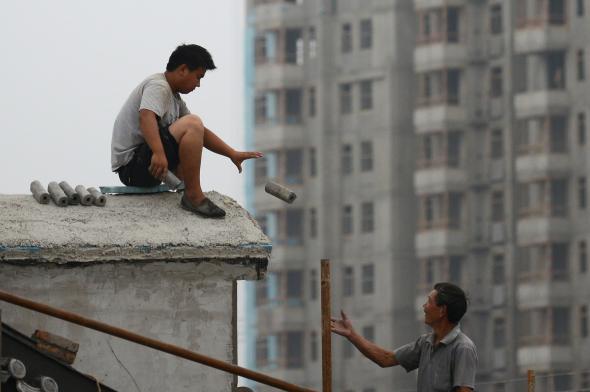A new report from the World Bank’s International Comparison Program released yesterday has been gaining quite a bit of attention for a revised projection that China will overtake the U.S. as the world’s largest economic power this year. America has held the top spot since 1872. The report compares economies based on purchasing power parity (PPP), rather than market exchange rates.
The Financial Times reports:
In 2005, the ICP thought China’s economy was less than half the size of the US, accounting for only 43 per cent of America’s total. Because of the new methodology – and the fact that China’s economy has grown much more quickly – the research placed China’s GDP at 87 per cent of the US in 2011.
For 2011, the report says: “The US remained the world’s largest economy, but it was closely followed by China when measured using PPPs.”
With the IMF expecting China’s economy to have grown 24 per cent between 2011 and 2014 while the US is expected to expand only 7.6 per cent, China is likely to overtake the US this year.
Chinese officials, particularly on the provincial level, have long been widely accused of inflating GDP numbers, and there’s been some skepticism about the story, but in this, it’s actually Beijing that’s rejecting the numbers.
The AP reports that China’s National Bureau of Statistics “expressed reservations” about the study’s methodology and “did not agree to publish the headline results for China.” In fact, the Chinese government reportedly worked behind the scenes for at least a year to have the report’s results thrown out.
The government was similarly reluctant to acknowledge previous milestones such as overtaking Germany as the world’s largest exporter, the United States as the biggest trader, and Japan as the world’s second-largest economy.
Given its immense pride in the country’s economic growth, why isn’t Beijing looking to take a victory lap here? One advisor to senior Chinese policymakers tells the FT, “On a per-capita basis, China is still a very poor country so it does not want to be asked to do too much on the international stage – at least not yet.”
In climate change negotiations, to take just one example, China is still classed as a developing country and argues its responsibility for global emissions reductions should be less than that of wealthy countries whose per capita emissions are higher. On the one hand, this makes perfect sense. In terms of per capita GDP, China barely cracks the top 100. But when the world’s largest global emitter is also the world’s largest economy, it becomes a little harder to argue that you shouldn’t be shouldering more responsibility for the problem.
In any case, milestones like this one are a bit of a moving target. By another method of calculating PPP, China overtook the U.S. back in 2010. According to regular GDP rankings, the advantages of which over PPP are explained here, China likely won’t be No. 1 until some time in the 2020s.
Barring a massive catastrophe, the day when the world’s biggest country is also its biggest economy is going to come sooner or later. Some recent evidence suggests that the long-established practice of local officials padding growth numbers may be going out of fashion, which could suggest that after years of striving to be the world’s preeminent economic power, China may be trying to delay the date a little longer.
